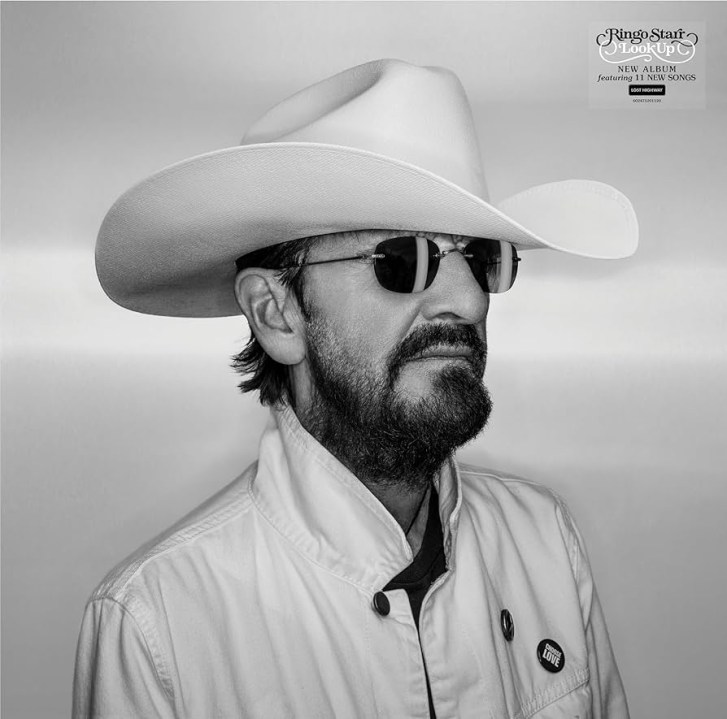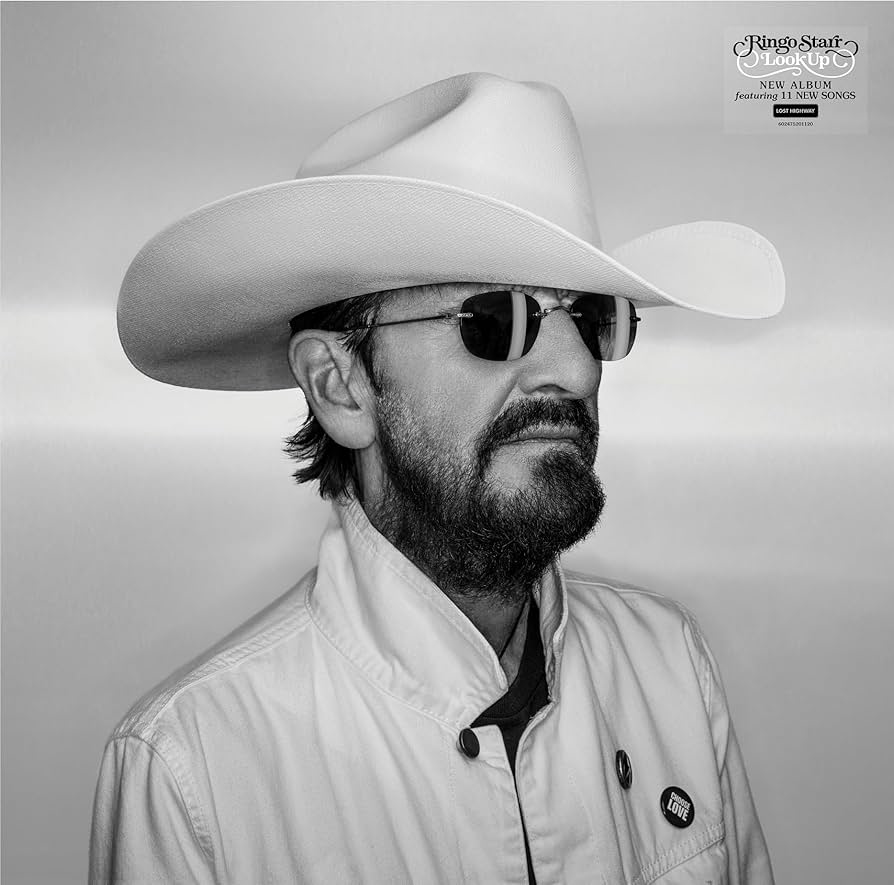
For artists lacking any obvious feel for the style, ‘going country’, similar to mainstream white artists dabbling in reggae in the 1970s following the breakthrough of Bob Marley, tends to elicit the sour whiff of a morning after the last chance saloon. Particularly at a time when a slick multi-hyphenate brand of country music is the pop trend du jour, carpetbagging and bandwagonism abounds.
The lyrics on Look Up are elementary to the point of banality, which is as it should be
Ringo Starr needn’t worry. Starr is the cowboy Beatle. He has loved this music from a young age, which is a long time. The Beatles wisely facilitated his enthusiasm. Starr sang a Buck Owens cover on Help! and contributed ‘What Goes On’ and the magnificent thunk of ‘Don’t Pass Me By’ to Rubber Soul and the White Album respectively. Almost as soon as he became an ex-Beatle, Starr made an entire country record; Beaucoups of Blues remains his most convincing solo album. As a singer – or, at least, a drummer who sings – if his hangdog drawl is suited to anything, it is the plain-spoken pathos of honky-tonk hymns.
As the current country-pop craze peaks, it is a smart and obvious move for Starr to realign himself with the genre. It also lends some much-needed context to a solo career which has often seemed offhand and frankly inessential.
To this end, Starr has enlisted T-Bone Burnett. Burnett, the best-connected man in Nashville, is a seasoned hand at these kind of projects on which a marquee name is assisted by a host of expert facilitators beavering away in the background. Here, Burnett writes or co-writes nine of the 11 tracks, plays, produces and wrangles a parade of guest artists – among them Alison Krauss, Larkin Poe, Lucius and Molly Tuttle – to chip in.
The aim? Old school authenticity. Burnett is an avatar of good taste and beholden to the traditional ways. Realising that Starr is an insufficiently robust and versatile artist to withstand a wholesale makeover, Look Up is as far from the modern country crossover sounds of Shaboozey and Jelly Roll as Liverpool is from Louisville. The musicianship throughout is fabulously lithe but low-key, while Starr’s drums and vocals are as immediately distinctive as his lugubrious features.
With only a little extra rocket fuel, ‘Breathless’ could slip alongside the Beatles’ version of ‘Act Naturally’ on Help!. ‘Never Let Me Go’ rattles away like a rockabilly ‘Love Me Do’. The tipsy, lovesick roll of ‘Come Back’ is particularly enjoyable: picture Starr strapped to the saddle as he lollops into some Godforsaken one-horse town, his voice ragged, his ravaged soul soothed by the sweet backing vocals of Lucius. Best of all is the slyly suggestive ‘You Want Some’, a clip-clopping saloon-bar gem which fits the Ringo brand as snugly as a bespoke cowboy boot.
Elsewhere, there are a couple of stellar weepies, adorned with pedal steel and appropriate levels of self-pity. The lyrics on Look Up are elementary to the point of banality, which is as it should be (although Starr is compelled to sing ‘sturm und drang’ at one point, surely a first in the history of country music). The exception is ‘String Theory’, which attempts to fuse The Dummies’ Guide to Particle Physics with cosmic love-speak and, unsurprisingly, fails to make a good song out of it. That misstep aside, Look Up is simple and satisfying. It may even prove to be that rare thing: a recent solo album by a former Beatle that demands repeated plays.
On Humanhood, the seventh album by the Weather Station, Canadian singer-songwriter Tamara Lindeman continues to pull off a strangely compelling conjuring trick. Lindeman’s voice is a cool, comforting thing delivering words that are hot to the touch. Lyrics flash by in a non-linear tumble until certain lines embed themselves. ‘Nothing needs you so badly as a lie’, from ‘Neon Signs’, is a neat summation of our lame complicity – personal and collective – in the age of disinformation.
The music is similarly conflicted, testing the tension between control and chaos. The drums most often draw a long straight line, in the unyielding tradition of disco and krautrock. Over and under this fixed rhythm Lindeman’s melodies meander and free-jazz abstractions drift and cluster. Though ultimately Humanhood betrays certain limitations in terms of sound and approach, it’s a record that keeps enticing you back, even when you are not entirely sure why.








Comments